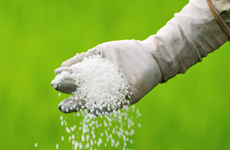
The Release , meanwhile reads “Every aspect of functioning of fertiliser industry is micro managed by the government on day-to-day basis. For example, the urea industry is governed by half a dozen policies for reimbursement of its legitimate cost of production and freight from factory gate to distribution points.”
The present government itself has recognized the need for reforms and has stated in unequivocal terms that there is an excess usage of urea and hence wastage of Rs.8,500 crores during 2013-14.
The FAI is sure that the sector is going to benefit in a big way if Prime Minister’s ‘Make in India’ is implemented faithfully. But, alas! the government has so far been lacking in policy formulation to encourage domestic production.
The existing urea plants are not being allowed to produce to their full revamped capacity because the production beyond the old capacity has become unviable under the pricing policy of 2008. The Department of Fertilizers did not take any decision to revise the policy in spite of intense discussions of one year under the previous government.
It also laments the procedural delays in the payment at the government end. Due to insufficient budget allocations for domestic urea there have been no payments of ‘On account subsidy’ since July 2014. On the other hand there is huge sum lying unutilized allocated for imported urea. It is obvious that there is under- allocation for domestic urea production and over allocation for imported urea. For P&K fertilisers also, the budget provision got exhausted in August, 2014. Government needs to make additional allocations of Rs. 30000 crores through supplementary grants to clear the back log and make the payment of bills up to February 2015 both for urea and P&K fertilisers.
Domestic gas has been allocated for production of urea as well as P&K fertilisers. This policy should continue as all fertilisers are equally important. A plant manufacturing P&K fertilisers was closed due to abrupt stoppage of gas supply to the plant. Supply of gas to this plant should be restored immediately.
The Ministry of Agriculture has been advocating for better fertiliser products like neem coated urea and fortified fertilisers with micro nutrients. These value added products will increase the fertiliser use efficiency and hence better return on investment on fertiliser application. However, the Department of Fertilizers is still pondering over the matter for taking decisions relating to covering these value added fertiliser products under the pricing policies.
In the end the release advocates greater use of the organic fertilisers like, city compost, farm yard manure, press mud, etc. to provide level playing field to these products. Their use will improve the physical and biological properties of the soil and increase the use efficiency of chemical fertilisers.
There is urgency to bring reforms in urea sector. As a first step urea should be brought under NBS with fixed subsidy and variable MRP. Many of the present problems can be solved with introduction of NBS for urea including issue of balanced use of fertilisers.
The Industry fervently appeals to the government that reforms process in the fertiliser sector should be taken forward. The decisions pending under the present policies themselves should be taken on urgent basis. This would not only save the domestic Industry from sickness but will help in increasing self-reliance.
The present government has stated very unequivocally the need for reforms. In his budget speech of the Finance Minister stated so. Now the time has come to implement them, says FAI. The government has now to follow through these statements of its intention of bringing reforms in the sector, in the interest of balanced fertilisation and encouragement to domestic production, it adds.